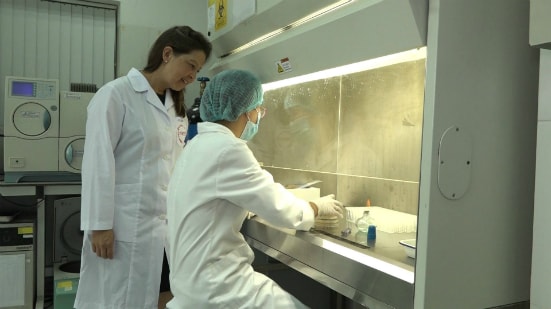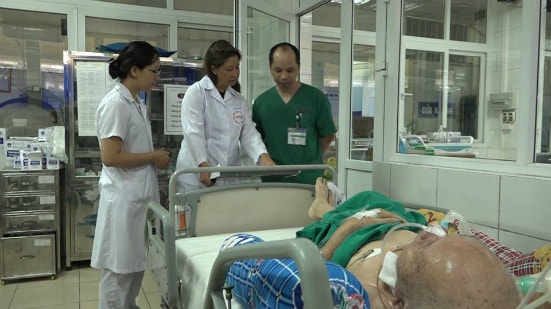Vietnam finds multidrug-resistant bacteria causing hospital infections
The National Hospital of Tropical Diseases collaborated with Cambridge University (UK) to conduct research on next-generation gene sequencing to identify multidrug-resistant bacteria.
Vietnam is the country with the highest rate of antibiotic-resistant bacteria in the world. Severe and multi-resistant infections are common in hospitals, especially in the Intensive Care and Emergency Departments. Common bacteria include intestinal bacteria such as E.coli, Klebsiella pneumoniae..., Pseudomonas aeruginosa, Staphylococcus aureus, Enterococcus...
Gram-negative bacteria belonging to the enterobacteria family are often resistant to third and fourth generation cephalosporins and have a relatively high rate of resistance to carbapenems. Gram-positive bacteria such as Staphylococcus aureus are resistant to methicillin. Bacteriavancomycin-resistant enterococci. Some other gram-negative bacteria are resistant to many antibiotics, including carbapenems. Colistin is the antibiotic of choice for treating multidrug-resistant gram-negative bacteria.
 |
Dr. Estee Torok Instructs PhysiciansApplication of gene sequencing technology. Photo: NQ |
Multidrug-resistant bacteria are concentrated in hospital environments and transmitted through many different routes, so hospital infection control is a concern of the health sector.This is not only a challenge in Vietnam but also a matter of great concern worldwide.
According to Dr. Estee Torok, Faculty of Medicine, University of Cambridge, routine techniques such as culture, isolation, immunohistochemistry, PCR are not enough to comprehensively identify multi-resistant bacteria, their level, antibiotic resistance mechanism and transmission route because of certain limitations.
Next-generation sequencing, especially whole-genome sequencing, is one of the current advances that allows for the precise identification of pathogenic bacteria, their levels, antibiotic resistance mechanisms, and transmission routes. This is also a technique that determines the origin and evolution of multidrug-resistant bacteria.
 |
Dr. Estee Torok examines a patient at the National Hospital for Tropical Diseases. Photo: NQ |
Associate Professor Dr. Nguyen Van Kinh, Director of the Central Hospital for Tropical Diseasessaid,bThe hospital is a leading facility for infectious and tropical diseases. Every year, the hospital receives and treats thousands of cases of patients with infectious diseases. Doctors at the hospitalThe hospital has collaborated with British experts to research multi-drug resistant bacteria causing hospital infections.
Hospitals in Vietnam face many challenges in diagnosing and treating infections caused by multidrug-resistant bacteria. Identifying the causative bacteria, the level of resistance, and the route of transmission are very important in preventing bacterial antibiotic resistance.
According to VNE
| RELATED NEWS |
|---|
